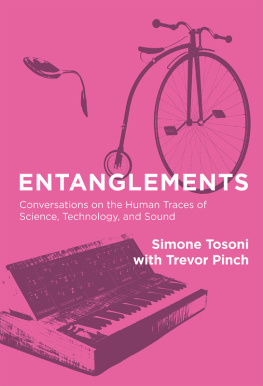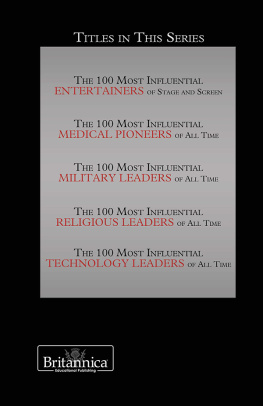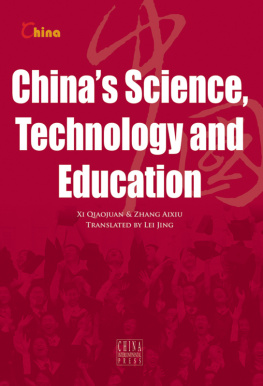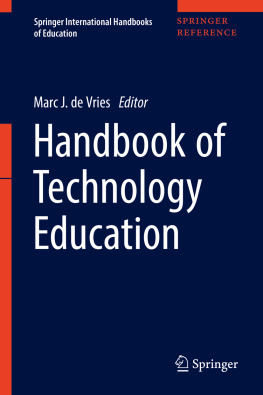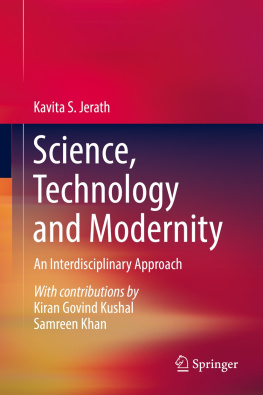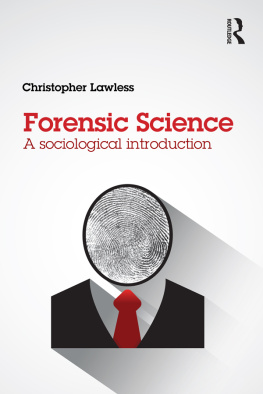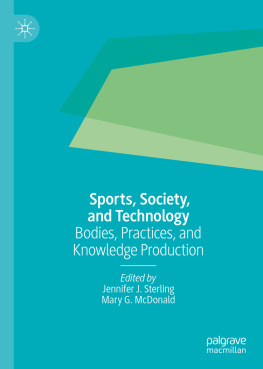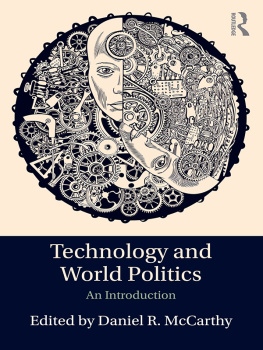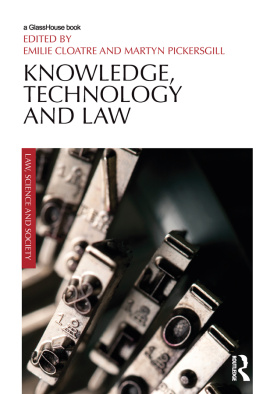Entanglements
Conversations on the Human Traces of Science, Technology, and Sound
Simone Tosoni with Trevor Pinch
The MIT Press
Cambridge, Massachusetts
London, England
2017 Massachusetts Institute of Technology
All rights reserved. No part of this book may be reproduced in any form by any electronic or mechanical means (including photocopying, recording, or information storage and retrieval) without permission in writing from the publisher.
This book was set in Stone Serif and Stone Sans by Toppan Best-set Premedia Limited. Printed and bound in the United States of America.
Library of Congress Cataloging-in-Publication Data
Names: Tosoni, Simone. Works. Selections. | Pinch, Trevor, 1952- Works.
Selections.
Title: Entanglements : conversations on the human traces of science,
technology, and sound / Simone Tosoni and Trevor Pinch.
Description: Cambridge, MA : The MIT Press, [2016] | Includes bibliographical
references and index.
Identifiers: LCCN 2016018211 | ISBN 9780262035279 (hardcover : alk. paper)
eISBN 9780262336543
Subjects: LCSH: Technology--Social aspects. | Human engineering.
Classification: LCC T14.5 .E57 2016 | DDC 303.48/3--dc23
LC record available at https://lccn.loc.gov/2016018211
ePub Version 1.0
Acknowledgments
I would like to thank Matteo Tarantino, Massimiliano Guareschi, Christine Leuenberger, Paola Sorrentino, Dario Marsic, Cesare Silla, and Davide Lampugnani for their invaluable contribution to the realization of this book, and Harry Collins for his inestimable remarks on the manuscript. A special thank you to Trevor Pinch for his commitment and dedication to this project.
Introduction: A Five-Step Guided Tour of the Social Construction of Technology
Most of what we do today is, in full or in part, mediated by technology. Therefore, science and technology studies (STS) have become a preciousand hardly negligibleinterlocutor for any research field studying contemporary social life, both in its mundane and less ordinary aspects. With varying promptness, scholars within fields as diverse as urban studies, mobility studies, organizational studies, body culture studies, media studies, visual and sound studies, and others have been engaging in an increasingly systematic dialogue with STS. This allows them to enrich their own take on their specialized objects of research and to better account for their manifold relationships with technological mediation. At the same time, scholars with a background in STS are participating directly in these fields, often with leading roles.
Yet, to a newcomer, the first exposure to STS may be bewildering. Notwithstanding the growing number of handbooks, manuals, and introductions published in the present phase of academic institutionalization of the field, it may be not easy to find a first orientation within a literature that during the last thirty years has become overwhelmingly large. In particular, a newcomer could be disoriented by the variety of approaches, conceptual frameworks, methodological stances, and philosophical assumptions that represent the interdisciplinary richness of STS and of its often-inflamed internal debates.
Getting an adequate introduction to the social construction of technology (SCOT) can be even more complicated. Introduced in 1984 by Trevor Pinch and Wieber Bijker that became somewhat of a motto) of technological innovation and exposing the shortcomings of technological determinism.
Yet, rather than proposing an all-encompassing and ready-made model to describe the relationship between technology and society, The Social Construction of Facts and Artifacts aimed to define the main guidelines of a new research program to come. Over thirty years of empirical research within this program have contributed to SCOTs development, refinement, and even revision. This scholarship has been published mainly as book chapters or papers in leading STS and sociology journals (Social Studies of Science, Technology & Culture; Science, Technology & Human Values; Qualitative Sociology; Sociology; The Sociological Review; and Theory and Society). Additionally, these papers have appeared in journals belonging to such diverse fields as organizational studies (Organization Studies,
In this broad and dispersive scenario, anyone wishing to get an exhaustive overview of SCOT will encounter quite some challenges, the biggest of which is having to chase scholarship left and right (often in unexpected places) without much of a map. This book intends to provide some help to this reader.
Another challenge for this lost reader is genealogical. As becomes apparent very early in studying the paradigm, SCOT cannot be fully understood without at least a smattering of the Empirical Programme of Relativism (EPOR), developed from the mid-1970s by the Bath School within the field of the sociology of scientific knowledge (SSK). With The Social Construction of Facts and Artifacts, Pinch and Bijker adapted EPOR, which had originally been conceived to study the social construction of scientific facts, to study also the social construction of technological artifacts. Throughout its evolution, SCOT has always intended to stay true to this notion of integrating the study of science and technology. The approach can be fully understood only in this light. Therefore, the next chapters will attempt to familiarize the reader with the main insights and debates of the Bath School.
Our lost and challenged reader is, anyhow, not alone. Her difficulties in gaining a comprehensive understanding of SCOT are by and large visible in the ongoing cross-disciplinary debates. Much of the literature is apparently stuck somewhere between the 1980s and the early 1990s: outside the specialized field of STS, the early formulations of the approach appear to be known, discussed, and criticized more than its recent developments.
I write from the perspective of media studies, my own academic field, which represents an egregious example of this temporal displacement. A systematic dialogue between media studies and STS can be traced back to the early 1990s. At that time, British and European cultural audience studies found in the social constructivist school, and especially in SCOT, the theoretical and methodological ammunition they needed to confront a technological determinism that, in some forms, was still influential in media studies. Notwithstanding its pivotal role in this revolution, SCOT has been, and still is, mainly addressed in the 1984 formulation.
This book represents an extended dialogue with Trevor Pinch, and it was built with the intention of helping both newcomers and scholars interested in technological mediation with a gateway to the SCOT approach and, through it, to the broader STS field. Entanglements was derived from the integral transcription of four rounds of conversation between Trevor Pinch and me, each lasting about two hours, recorded between September 2012 and October 2014 in Ithaca (NY), Paris, and Milan. The four sessions have been revised for coherence and readability, integrated with supplementary material from epistolary exchanges, and edited into four chronological chapters. The chapters follow Pinchs work and career from the early years in SSK to his most recent works on selling and sound. The discussion about SCOT is therefore interposed with recollections of the climate of the STS field throughout the years, from the enthusiasm of its first steps to the present phase of academic institutionalization.
In addressing the most recent development of SCOT, the book focuses also on the theoretical and methodological issues central to the cross-disciplinary dialogue between STS and neighboring fieldsespecially, and inevitably, with media studies. In particular, throughout the text,

